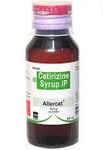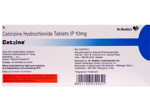cz
Introduction to cz
Cetirizine, commonly referred to as cz, is an antihistamine medication. It is primarily used to treat symptoms associated with allergies, such as a runny nose, sneezing, and itchy or watery eyes. These symptoms are often caused by conditions like hay fever.
Composition of cz
The active ingredient in cz is Cetirizine. This component works by blocking the effects of histamine, a chemical that your body releases during an allergic reaction.
Uses of cz
- Treats symptoms of hay fever and other allergies
- Relieves runny nose and sneezing
- Reduces itchy or watery eyes
- Alleviates itching of the nose or throat
Side effects of cz
Common side effects:
- Drowsiness
- Changes in appetite
- Mood swings
- Difficulty sleeping
- Headaches
- Nausea
- Diarrhea
- Weight gain
- Decrease in libido
Serious side effects: If you experience any serious side effects, consult your healthcare provider immediately.
Precautions of cz
Cetirizine may cause drowsiness. Avoid drinking alcohol or taking sedatives as they can increase this effect. If you're pregnant or breastfeeding, or if you have liver or kidney problems, or are taking tranquilizers or sedatives, talk to your doctor before using Cetirizine. Always consult your healthcare provider if you experience serious side effects.
How to Take cz
- For adults and children 6 years and older, the typical dosage is one 10 mg tablet once a day.
- For milder symptoms, a 5 mg dose can be taken.
- The tablet can be taken with or without water.
- There are no specific food restrictions.
Conclusion of cz
Cetirizine is an effective medication for managing allergy symptoms. However, it is important to be aware of its potential side effects and precautions. Always consult with a healthcare provider to ensure it is safe for you, especially if you have underlying health conditions or are taking other medications.
Similar Medicines
Available in 2 variations

CZ 3 Syrup 60ml
bottle of 60 ml syrup

CZ 3 Tablet 10s
strip of 10 tablets
Related Faqs

Can I take Cetrizine Tablet and Fexofenadine together?
In certain cases your doctor might suggest combining two distinct antihistamines to combat a severe and persistent itchy rash For instance if you are already taking Cetrizine Tablet during the day your healthcare provider may prescribe an additional antihistamine at night that induces drowsiness This approach is generally recommended when the itchiness interferes with your ability to get proper sleep However it is crucial to adhere to your doctors guidance and avoid selfmedicating with multiple antihistamines simultaneously By combining antihistamines with different mechanisms of action the goal is to enhance the effectiveness of the treatment and provide relief around the clock While Cetrizine Tablet helps alleviate symptoms during the daytime the alternative antihistamine prescribed for nighttime use aids in soothing the itchiness and facilitating better sleep Nonetheless it is essential to exercise caution and not take two antihistamines together without proper medical advice Each individuals condition is unique and the decision to combine antihistamines is based on a thorough evaluation by a healthcare professional who can assess the potential risks and benefits Following their expert guidance will ensure the most appropriate and safe treatment for your specific situation
Related Posts

1:15
Summary of Infectious Diseases

1:15
How Do You Know If You Have a Vaginal Infection? Warning Signs!

1:15
Top Health Benefits of Cinnamon | How to Use It for Better Health!

1:15
Is Your Blood Pressure Too Low? What Are the Best Remedies to Fix Low Blood Pressure Instantly?

1:15
Mala D: How it works, When and How to take Mala D and Side Effects of Mala D!

1:15
Reduce Inflammation Naturally: Best Foods for Heart, Diabetes & Overall Health!






















.svg)
